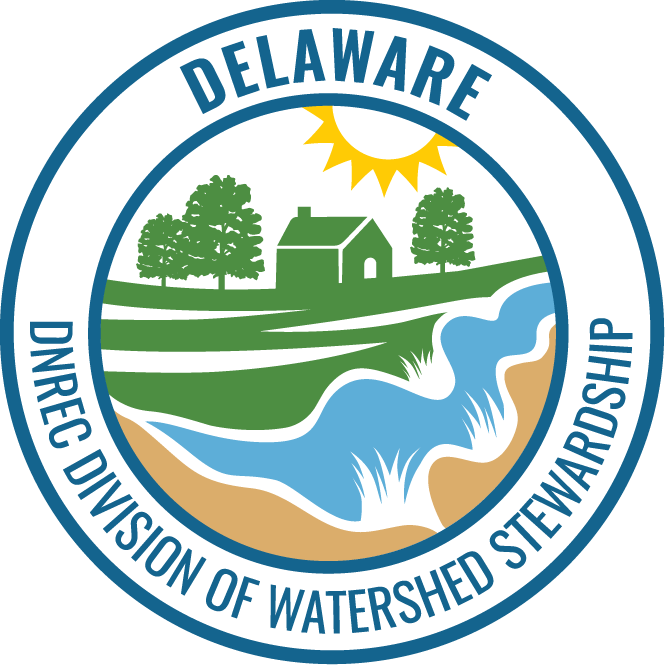
Facebook Twitter Instagram YouTube
Written on: March 19th, 2025 in Wetland Research, Wetland Restoration
By Kenny Smith, DNREC’s Wetland Monitoring and Assessment In 2024 the Delaware Coastal Program and the Wetland Monitoring and Assessment Program worked together to update the Delaware Marsh Migration Model originally created in 2017. New and updated layers were added, as well as some refinement of scoring to better understand where our tidal wetlands may […]
Written on: July 24th, 2024 in Natural Resources, Wetland Research
By Gabby Vailati and Brittany Sturgis, DNREC’s Watershed Assessment and Management Section Delaware Department of Natural Resources and Environmental Control’s Habitat and Biology Program began in the early 1990s after the passing of the Clean Water Act and awareness about local water quality began increasing. The program assessed a vast number of streams and assigned […]
Written on: March 13th, 2024 in Education and Outreach, Wetland Research
By Caroline Kurtz and Beth Wasden, The Nanticoke Watershed Alliance Let’s dive into a fantastic program out of the most biologically diverse watershed on Delmarva. But first, who are we! The Nanticoke Watershed Alliance (NWA) is a non-profit environmental organization that includes partners from Maryland and Delaware including representatives from industry, agriculture, environmental agencies, and […]
Written on: December 19th, 2022 in Wetland Assessments
By Alison Rogerson, DNREC’s Wetland Monitoring and Assessment Program In this sixth and final installment in my Wetland Status and Trends blog series, I’m wrapping it all up with management recommendations. We came, we mapped, we calculated, we reported, now what? What comes next for wetland management and conservation in Delaware based on this project? […]
Written on: September 26th, 2022 in Wetland Assessments
By Alison Rogerson, DNREC’s Wetland Monitoring and Assessment Program Over the past year plus I’ve written five blogs sharing the results of our 2007-2017 Status and Trends report which reviews many angles of Delaware’s wetlands based on analysis of the 2017 Statewide Wetland Mapping Project (SWMP). In this post I am focusing on final thoughts […]
Written on: July 13th, 2022 in Wetland Assessments
By Brittney Flatten, DNREC’s Watershed Assessment and Management Section This summer, the Wetland Monitoring and Assessment Program (WMAP) team is doing wetland condition assessments in the Pocomoke River watershed. During an assessment, scientists look at soil quality, rate sources of water, evaluate the plant community, and identify stressors in or around the wetland. These observations […]
Written on: May 25th, 2022 in Wetland Assessments, Wetland Restoration
By Erin Dorset, DNREC’s Division of Fish and Wildlife The Inland Bays are a beautiful and beloved part of Delaware, containing about 20% of the state’s wetlands. Those wetlands are important economically, culturally, and ecologically, as they improve water quality, support commercial and recreational fisheries, support tourism, absorb flood waters, and provide crucial feeding and […]
Written on: May 25th, 2022 in Wetland Assessments
By Alison Rogerson, DNREC’s Wetland Monitoring and Assessment Program The summer of 2019 was like most for the Wetland Monitoring and Assessment Program field crew. Similar to summers before it since 2000, we had a selected watershed to focus on and call ‘office’ for the growing season. Field crews spend the summer visiting randomly selected […]
Written on: March 16th, 2022 in Wetland Assessments
By Alison Rogerson, DNREC’s Wetland Monitoring and Assessment Program By now, you may have read through our previous Status and Trends blog posts focused on current acreage, or status, of wetlands, as well as trends such as gains and losses. There is still one trends category to dive into: changes. This is probably the most […]
Written on: December 8th, 2021 in Wetland Assessments
By Brittney Flaten, DNREC’s Watershed Management and Assessment Section Before I started at DNREC, I worked in Maryland conducting stream health assessments. When I joined the Wetland Monitoring and Assessment Program (WMAP) I was excited to learn that the team was working on a new stream assessment protocol. Let’s look at what a stream assessment […]